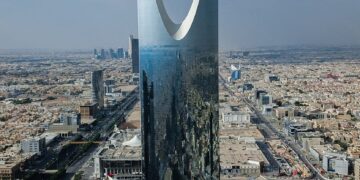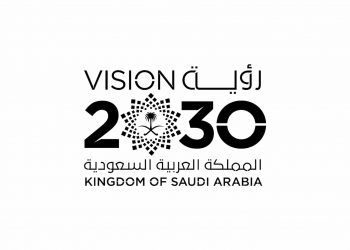2030 and the Promising Prospects for Tourism and Investment
Saudi Arabia is embarking on a transformative journey with its Vision 2030 plan, which aims to diversify the economy and reduce its reliance on oil. This ambitious blueprint has far-reaching implications for various sectors, including tourism and investment. By focusing on key goals and objectives, Vision 2030 sets the stage for a promising future for Saudi Arabia. This article explores the impact of Vision 2030 on the tourism and investment sectors, the opportunities it presents, and the role of global enterprises in driving growth.
Key goals and objectives of Vision 2030
Vision 2030 outlines a comprehensive roadmap for Saudi Arabia’s economic transformation. The plan aims to reduce the country’s dependence on oil revenues by diversifying the economy and developing non-oil sectors. Some of the key goals include increasing the contribution of the private sector, attracting foreign investment, and enhancing the role of tourism in the overall economy. By 2030, Saudi Arabia aims to be one of the top tourist destinations and a global investment hub.
The impact of Vision 2030 on the tourism and investment sectors
Vision 2030 has already begun to reshape the tourism and investment landscape in Saudi Arabia. The plan envisions a significant increase in the number of international and domestic tourists, as well as the development of world-class tourism infrastructure. This will not only boost the tourism sector but also create numerous investment opportunities in areas such as hospitality, entertainment, and transportation.
Moreover, Vision 2030 aims to attract foreign direct investment by improving the business environment and implementing investor-friendly policies. The plan encourages partnerships between local and global enterprises, fostering collaboration and knowledge transfer. This opens up new avenues for foreign companies to invest in Saudi Arabia and contribute to its economic growth.
Promising prospects for tourism in Saudi Arabia
Saudi Arabia has immense potential to become a major player in the global tourism industry. The country is rich in cultural heritage, with historical sites such as Madain Saleh and Diriyah attracting tourists from around the world. Vision 2030 seeks to capitalize on this cultural heritage by promoting tourism and developing tourist destinations.
In addition to historical attractions, Saudi Arabia offers diverse natural landscapes, including pristine beaches, mountains, and deserts. The plan aims to develop these natural assets into tourist hotspots, attracting nature enthusiasts and adventure seekers. With the relaxation of visa regulations and the introduction of e-visas, Saudi Arabia is becoming increasingly accessible to international tourists.
Investment opportunities in Saudi Arabia under Vision 2030
Vision 2030 presents a plethora of investment opportunities across various sectors. As the tourism industry expands, there is a growing demand for luxury hotels and resorts. Investors can capitalize on this demand by developing high-end hospitality properties in popular tourist destinations such as Riyadh, Jeddah, and the Red Sea coast. The government is also encouraging investment in entertainment and leisure facilities to enhance the overall tourist experience.
Apart from the tourism sector, Vision 2030 aims to develop the hotel and business office infrastructure in Saudi Arabia. This presents investment opportunities in the construction and real estate sectors. With the growth of tourism and the increasing number of business travelers, there is a need for modern and well-equipped hotels, as well as office spaces that meet international standards.
The role of global enterprises in Saudi Arabia’s growth
Global enterprises play a crucial role in driving Saudi Arabia’s economic growth under Vision 2030. These companies bring in expertise, technology, and investment that contribute to the development of key sectors. By partnering with local businesses, global enterprises can leverage the opportunities presented by Vision 2030 and contribute to the country’s overall development.
Furthermore, global enterprises can facilitate knowledge transfer and skill development in Saudi Arabia. By training local talent and promoting entrepreneurship, these companies can help build a sustainable and diversified economy. The government has introduced various initiatives to attract global enterprises, including streamlined regulations and incentives for foreign investors.
The development of luxury hotels and resorts in Saudi Arabia
One of the key focus areas under Vision 2030 is the development of luxury hotels and resorts in Saudi Arabia. The plan aims to position the country as a premier tourist destination, offering world-class accommodation and amenities. This presents a significant investment opportunity for both local and international investors.
By developing luxury hotels and resorts, Saudi Arabia can attract high-spending tourists and position itself as a hub for luxury travel. These properties can cater to both leisure and business travelers, providing state-of-the-art facilities and services. The government is actively supporting the development of such projects through incentives and partnerships with private investors.
The growth of hotel and business office infrastructure
As Saudi Arabia aims to become a global investment hub, the growth of hotel and business office infrastructure is crucial. Vision 2030 recognizes the need for modern and well-equipped facilities to attract international businesses and investors. This presents investment opportunities in the construction, real estate, and hospitality sectors.
The plan focuses on developing business-friendly environments, including the establishment of special economic zones and industrial cities. These initiatives aim to attract multinational companies and encourage them to set up their regional headquarters or branch offices in Saudi Arabia. The growth of business offices will create a demand for quality office spaces and corporate services, presenting opportunities for investors in these sectors.
Addressing the labor needs for tourism and investment sectors
As Saudi Arabia’s tourism and investment sectors expand under Vision 2030, there is a need to address the labor requirements. The plan emphasizes the development of a skilled workforce by investing in education and vocational training programs. This ensures that the local population is equipped with the necessary skills to meet the demands of these growing sectors.
Additionally, Vision 2030 encourages the recruitment of international talent to fill the gaps in specialized skills and expertise. This opens up opportunities for global enterprises to contribute to Saudi Arabia’s growth by bringing in their workforce and knowledge. The government has implemented reforms to simplify the employment process for foreign workers, making it easier for companies to recruit the required talent.
The future of Saudi Arabia’s tourism and investment under Vision 2030
Saudi Arabia’s Vision 2030 sets the stage for a promising future for the tourism and investment sectors. With its ambitious goals and comprehensive roadmap, the plan aims to diversify the economy and position the country as a global player. The development of luxury hotels and resorts, the growth of hotel and business office infrastructure, and the focus on attracting global enterprises are all key drivers of this transformation.
Moreover, Vision 2030 presents numerous investment opportunities for both local and international investors. By capitalizing on the country’s cultural heritage, natural landscapes, and business-friendly environment, investors can contribute to Saudi Arabia’s economic growth and benefit from its potential as a thriving tourism and investment hub.
As Saudi Arabia continues on its journey towards Vision 2030, it is clear that the future holds immense potential for tourism and investment in the country. By embracing this vision and seizing the opportunities it presents, Saudi Arabia can pave the way for a prosperous and sustainable future.











